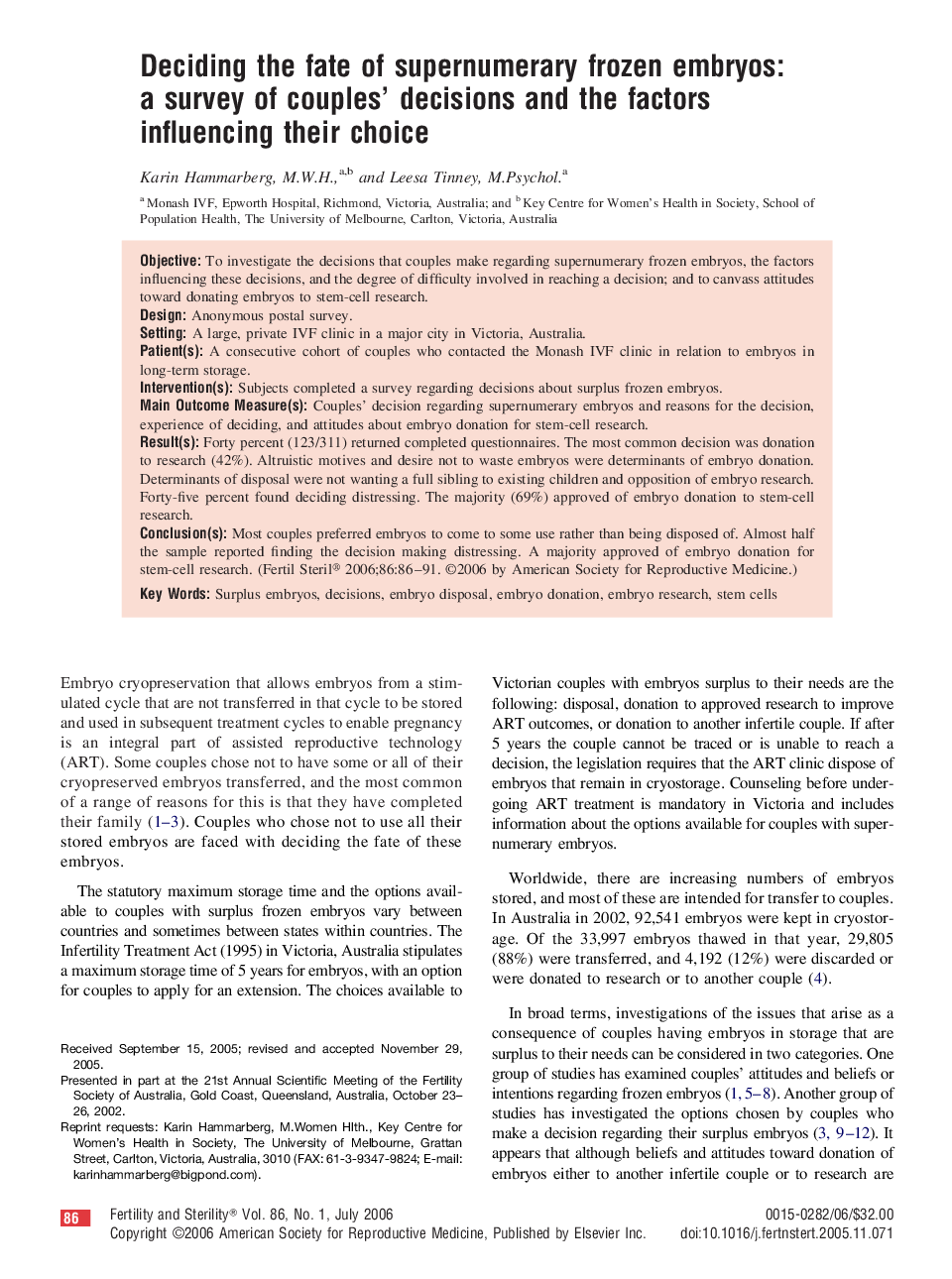| Article ID | Journal | Published Year | Pages | File Type |
|---|---|---|---|---|
| 3941376 | Fertility and Sterility | 2006 | 6 Pages |
ObjectiveTo investigate the decisions that couples make regarding supernumerary frozen embryos, the factors influencing these decisions, and the degree of difficulty involved in reaching a decision; and to canvass attitudes toward donating embryos to stem-cell research.DesignAnonymous postal survey.SettingA large, private IVF clinic in a major city in Victoria, Australia.Patient(s)A consecutive cohort of couples who contacted the Monash IVF clinic in relation to embryos in long-term storage.Intervention(s)Subjects completed a survey regarding decisions about surplus frozen embryos.Main Outcome Measure(s)Couples’ decision regarding supernumerary embryos and reasons for the decision, experience of deciding, and attitudes about embryo donation for stem-cell research.Result(s)Forty percent (123/311) returned completed questionnaires. The most common decision was donation to research (42%). Altruistic motives and desire not to waste embryos were determinants of embryo donation. Determinants of disposal were not wanting a full sibling to existing children and opposition of embryo research. Forty-five percent found deciding distressing. The majority (69%) approved of embryo donation to stem-cell research.Conclusion(s)Most couples preferred embryos to come to some use rather than being disposed of. Almost half the sample reported finding the decision making distressing. A majority approved of embryo donation for stem-cell research.
